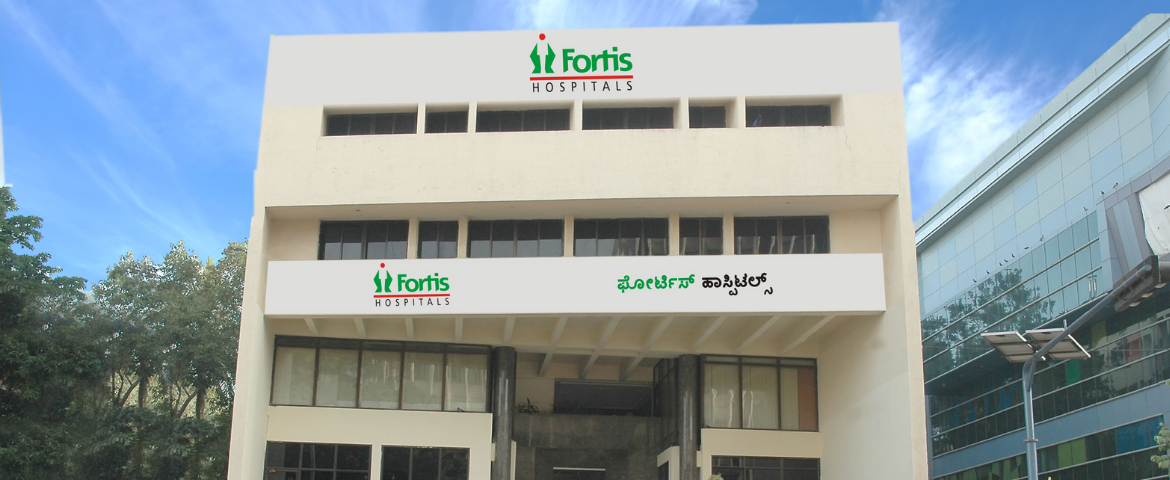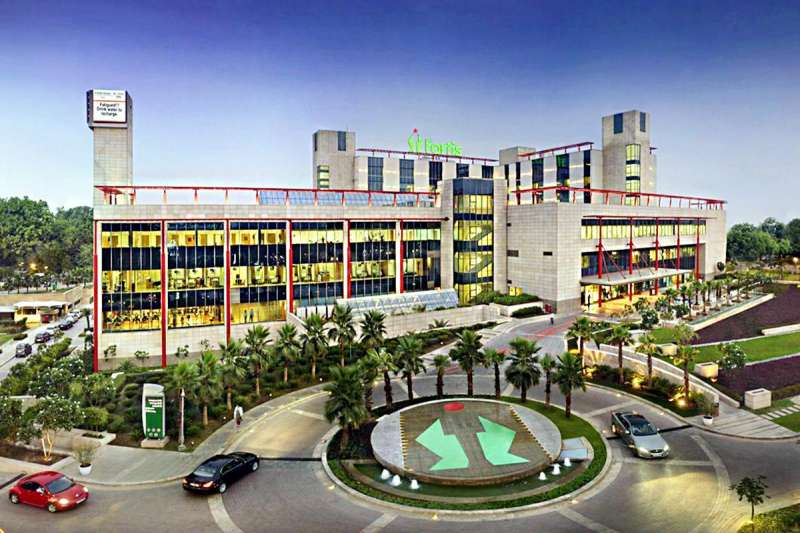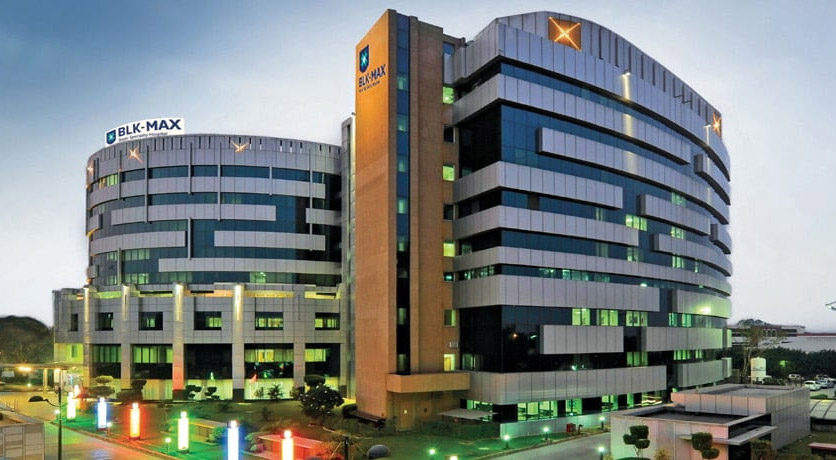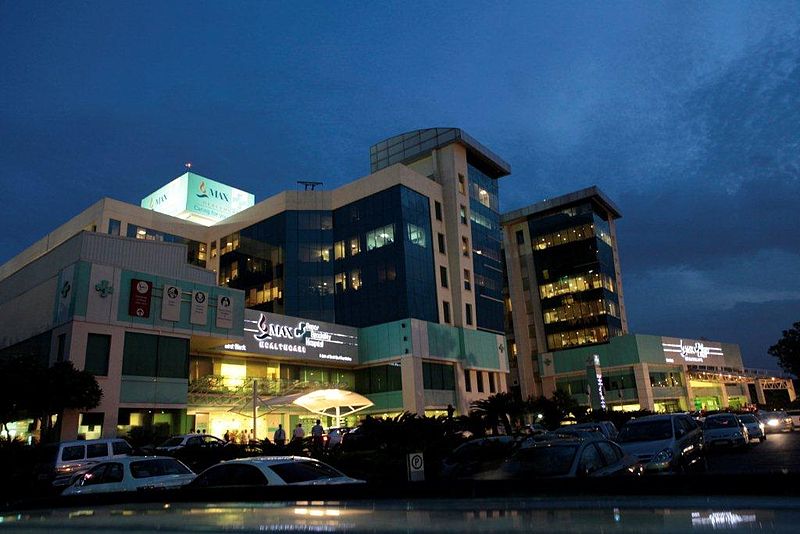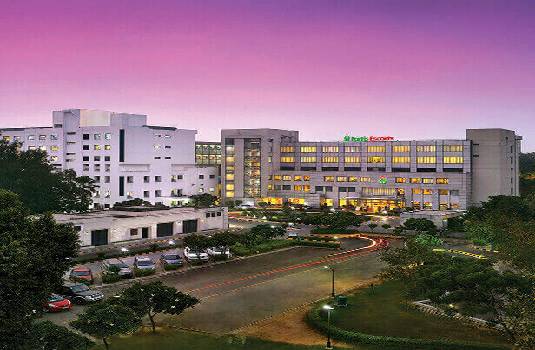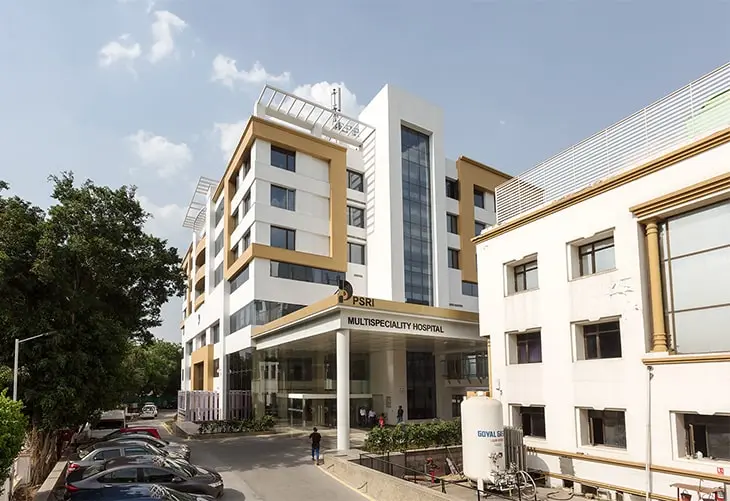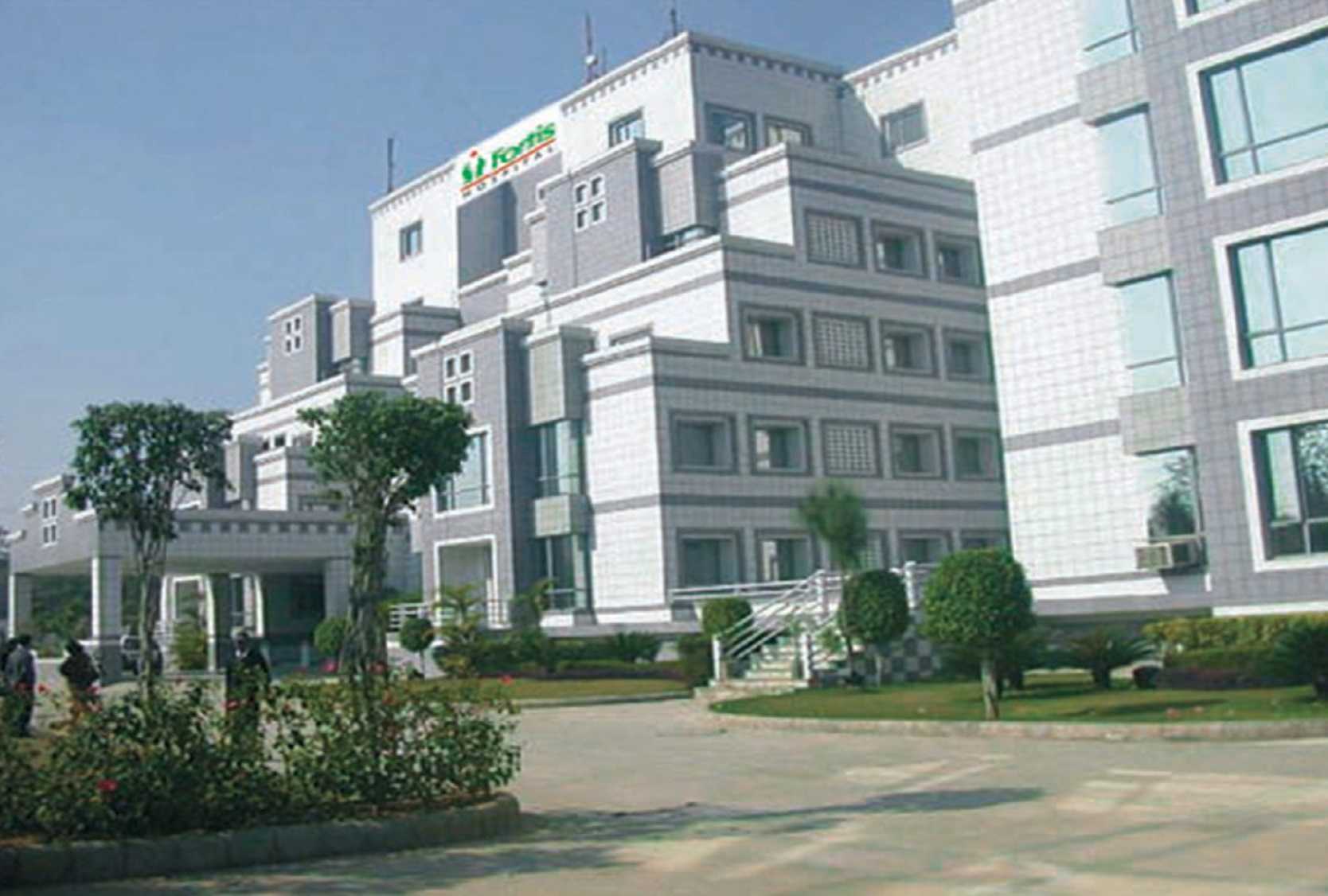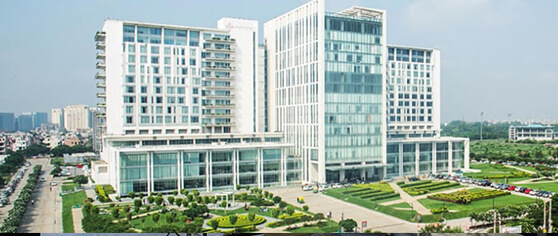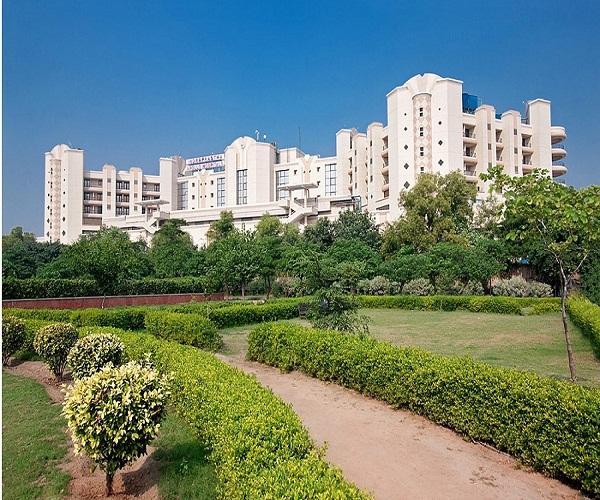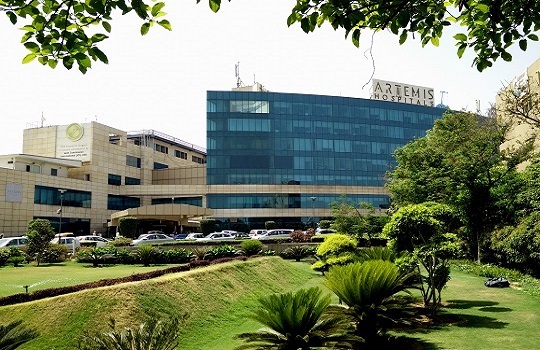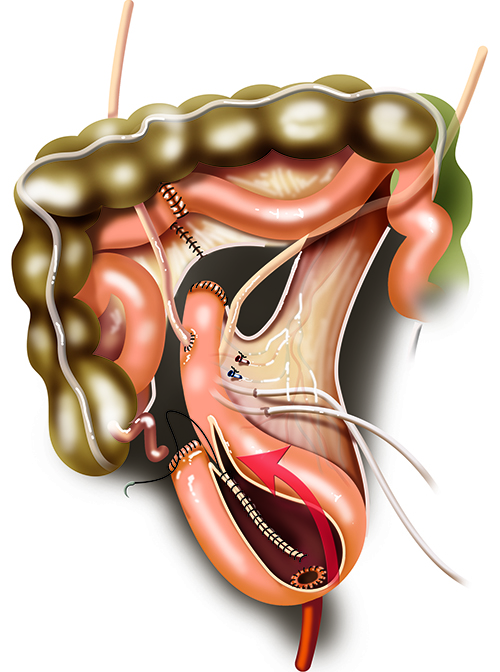Cystectomy Radical and Orthotopic Bladder cost in India
The cost of Cystectomy Radical and Orthotopic Bladder in
India ranges from USD 3500 to USD 10000
Cystectomy Radical and Orthotopic Bladder:
A radical cystectomy involves removing the whole bladder as well as the lymph nodes in the surrounding area. The prostate gland and the glands that store semen are also removed in men (seminal vesicles). This is because to the possibility of a recurrence of bladder cancer in this location. Women's wombs and fallopian tubes are routinely removed by the surgeon.
An orthotopic neobladder is a type of internal urinary diversion in which a tiny intestinal segment is utilized to create a new (neo) reservoir for urine. The ureters, like the urethra, are linked to the neobladder, allowing for natural voiding.
Cystectomy Radical and Orthotopic Bladder:
A radical cystectomy involves removing the whole bladder as well as the lymph nodes in the surrounding area. The prostate gland and the glands that store semen are also removed in men (seminal vesicles). This is because to the possibility of a recurrence of bladder cancer in this location. Women's wombs and fallopian tubes are routinely removed by the surgeon.
An orthotopic neobladder is a type of internal urinary diversion in which a tiny intestinal segment is utilised to create a new (neo) reservoir for urine. The ureters, like the urethra, are linked to the neobladder, allowing for natural voiding.
Disease Overview:
Bladder Cancer
Bladder cancer is a form of cancer that starts in the bladder's cells. The bladder is a hollow muscular structure that retains urine in your lower abdomen.
Bladder cancer usually starts in the cells that line the lining of your bladder (urothelial cells). Your kidneys and the tubes (ureters) that link the kidneys to the bladder also contain urothelial cells. Although urothelial carcinoma can occur in the kidneys and ureters, it is far more frequent in the bladder.
The majority of bladder cancers are detected early on, when they are very curable. Even early-stage bladder tumours, however, might recur following therapy. As a result, patients with bladder cancer often require follow-up examinations for years following therapy.
Different kinds of bladder cells have the potential to become malignant. The type of bladder cell from which cancer develops determines the type of cancer. This information is used by doctors to identify which therapies are most likely to be effective for you.
The following are examples of bladder cancer types:
Urothelial carcinoma is a kind of cancer that affects the lining of the Transitional cell carcinoma is a kind of urothelial carcinoma that develops in the cells that lining the interior of the bladder. When your bladder is full, urothelial cells expand, and when your bladder is empty, they contract. The insides of the ureters and urethra are lined with the same cells, and malignancies can occur there as well. In the United States, urothelial carcinoma is the most frequent kind of bladder cancer.
Squamous cell carcinoma is a kind of cancer that affects the skin. Chronic irritation of the bladder, such as from an infection or long-term use of a urinary catheter, is linked to squamous cell carcinoma. In the United States, squamous cell bladder cancer is uncommon. It's more frequent in places of the world where schistosomiasis, a parasitic illness, is a common cause of bladder infections.
Adenocarcinoma. Adenocarcinoma originates in the cells of the bladder's mucus-secreting glands. Bladder adenocarcinoma is an uncommon cancer.
Disease Signs and Symptoms
Symptoms and indicators of bladder cancer include:
- Hematuria (blood in the urine) causes the urine to look bright red or cola-colored, while the urine can also seem normal and blood can be discovered on a lab test.
- Urination on a regular basis
- Urination that hurts
- Back ache
Disease Causes:
Bladder cancer develops when the DNA of cells in the bladder changes (mutates). The DNA of a cell carries instructions that tell it what to do. The modifications instruct the cell to reproduce quickly and continue to live even when healthy cells would perish. The aberrant cells create a tumour, which can infiltrate and kill healthy tissue. The aberrant cells might eventually break free and spread throughout the body (metastasize).
Risk Factors
The following are some of the factors that may raise the risk of bladder cancer:
Smoking. By allowing hazardous chemicals to build in the urine, smoking cigarettes, cigars, or pipes may raise the risk of bladder cancer. When you smoke, the chemicals in the smoke are processed by your body, and some of them are excreted in your urine. These dangerous substances can injure the lining of your bladder, raising your cancer risk.
Getting older. As you become older, your chances of developing bladder cancer rise. Though bladder cancer can strike anybody at any age, the majority of those diagnosed are over the age of 55.
Being a man. Bladder cancer is more common in males than it is in women.
Chemical poisoning is caused by exposure to specific substances. Your kidneys are responsible for filtering dangerous substances out of your bloodstream and transporting them to your bladder. As a result, it's possible that being exposed to certain chemicals raises the chance of bladder cancer. Arsenic, as well as chemicals used in the creation of dyes, rubber, leather, textiles, and paint products, have been associated to bladder cancer risk.
Previous therapy for cancer. The anti-cancer medication cyclophosphamide raises the risk of bladder cancer. People who have had pelvic radiation treatments for a prior malignancy are more likely to get bladder cancer.
Bladder irritation that lasts a long time. Chronic or recurrent urinary infections or inflammations (cystitis), such as those caused by the use of a urinary catheter for an extended period of time, may raise the risk of squamous cell bladder cancer. Squamous cell carcinoma is connected to persistent bladder inflammation produced by the parasite diseases schistosomiasis in several parts of the world.
Cancer in one's own family or in one's own family. You're more likely to have bladder cancer again if you've had it before. Although bladder cancer seldom runs in families, if one of your blood relatives — a parent, sibling, or child — has had the disease, you may be at an elevated risk of developing it.
Lynch syndrome, also known as hereditary nonpolyposis colorectal cancer (HNPCC), increases the risk of cancers of the urinary system, colon, uterus, ovaries, and other organs in the family.
Disease Diagnosis:
The following tests and procedures may be used to diagnose bladder cancer:
Examining the interior of your bladder with a scope (cystoscopy). A thin, narrow tube (cystoscope) is inserted into your urethra by your doctor to perform cystoscopy. The cystoscope contains a lens that allows your doctor to check the interior of your urethra and bladder for symptoms of illness using it. A doctor's office or a hospital can do a cystoscopy.
Taking a tissue sample for testing (biopsy). Your doctor may use a special instrument to enter through the scope and into your bladder to collect a cell sample (biopsy) for testing during cystoscopy. Transurethral resection of bladder tumour is another name for this operation (TURBT). Bladder cancer can also be treated by TURBT.
Taking a look at a urine sample (urine cytology). Urine cytology is a process that examines a sample of your urine under a microscope to look for cancer cells.
Imaging tests are performed. Your doctor can check the architecture of your urinary system using imaging procedures like a computed tomography (CT) urogram or a retrograde pyelogram.
A contrast dye injected into a vein in your hand runs into your kidneys, ureters, and bladder during a CT urogram. X-ray pictures taken during the test give a thorough view of your urinary system and assist your doctor in detecting any cancerous spots.
An X-ray test called a retrograde pyelogram is utilised to acquire a comprehensive look at the upper urinary system. A tiny tube (catheter) is threaded through your urethra and into your bladder to inject contrast dye into your ureters during this procedure. The dye is subsequently injected into your kidneys, and X-ray pictures are taken.
determining the cancer's extent
Your doctor may prescribe more tests after establishing that you have bladder cancer to see if the disease has spread to your lymph nodes or other parts of your body.
The following tests may be performed:
- X-rays
- Magnetic resonance imaging (MRI) is a type of imaging that (MRI)
- Positron emission tomography (PET) is a kind of positron emission to (PET)
- Scan of the bones
- X-ray of the chest
Your doctor will assign a stage to your cancer based on the results of these procedures. Bladder cancer stages are designated by Roman numerals ranging from 0 to IV. The first stages imply a malignancy that has only spread to the bladder's inner layers and hasn't spread to the muscular bladder wall. Stage IV cancer refers to cancer that has progressed to lymph nodes or organs in other parts of the body.
Grade of Bladder Cancer
Bladder cancers are further divided into subtypes depending on how the cancer cells appear under a microscope. This is referred to as the grade, and your doctor may categorise bladder cancer as low or high grade:
Your doctor will assign a stage to your cancer based on the results of these tests. The stages of bladder cancer are numbered from 0 to IV. The earliest stages imply a malignancy that hasn't spread beyond the bladder's inner layers and hasn't spread to the muscular bladder wall. Stage IV cancer has progressed to lymph nodes or organs in other parts of the body.
Grade of bladder cancer
- Bladder cancers are further divided into types based on how the cancer cells appear under a microscope. This is known as the grade, and your doctor may classify your bladder cancer as low or high grade:
- Bladder cancer of a low grade. This form of cancer has cells that resemble normal cells in appearance and structure (well differentiated). A low-grade tumour develops more slowly than a high-grade tumour and is less likely to breach the bladder's muscular wall.
- Bladder cancer of a high grade. Cells of this form of cancer have an aberrant appearance and bear no similarity to normal tissues (poorly differentiated). A high-grade tumour grows faster than a low-grade tumour and is more likely to spread to the bladder's muscular wall as well as other tissues and organs.
Disease Treatment:
Treatment choices for bladder cancer are determined by a variety of criteria, including the kind of cancer, the grade of the disease, and the stage of the illness, as well as your overall health and treatment preferences.
Treatment options for bladder cancer include:
- Surgical removal of malignant cells
- Intravesical chemotherapy is used to treat malignancies that are restricted to the bladder lining but have a high risk of recurrence or progression to a more advanced stage.
- Chemotherapy for the entire body (systemic chemotherapy) to improve the chances of a cure in people who are having their bladders removed, or as a main treatment when surgery isn't an option.
- When surgery isn't an option or isn't wanted, radiation therapy is frequently used as a primary treatment.
- Immunotherapy, which activates the body's immune system to combat cancer cells in the bladder or elsewhere in the body.
- When previous therapies haven't worked, targeted therapy is used to treat advanced cancer.
- Your doctor and other members of your care team may propose a mix of treatment options.
Surgical treatment for bladder cancer
The following are some options for bladder cancer surgery:
Resection of a bladder tumour through the urethra (TURBT). TURBT is a technique used to identify bladder cancer and remove tumours that are restricted to the bladder's inner layers and aren't yet muscle-invasive. During the surgery, a surgeon inserts an electric wire loop into the bladder through a cystoscope. The cancer is sliced or burned away using the electric current in the wire. A high-energy laser might be utilised instead.
Cystectomy. A cystectomy is a procedure that involves removing all or part of the bladder. Your surgeon removes only the section of the bladder that has a single malignant tumour during a partial cystectomy.
The whole bladder and accompanying lymph nodes are removed during a radical cystectomy. The prostate and seminal vesicles are usually removed during a radical cystectomy in males. The uterus, ovaries, and a portion of the vaginal wall may be removed during a radical cystectomy in women.
Reconstruction of the neobladder. Your surgeon will need to develop a new path for pee to exit your body after a radical cystectomy (urinary diversion). Neobladder reconstruction is one method for urine diversion. A sphere-shaped reservoir is made from a section of your intestine by your surgeon. The neobladder is a reservoir that resides inside your body and is connected to your urethra. Most people can urinate properly thanks to the neobladder. A tiny percentage of patients have trouble emptying their neobladder and may need to use a catheter to drain all of the pee from the neobladder on a regular basis.
Conduit ileal. Your surgeon will use a portion of your intestine to build an ileal conduit for this form of urine diversion. The tube connects your kidneys' ureters to the outside of your body, where urine is collected in a pouch (urostomy bag) worn on your belly.
Urinary reservoir in the continent. Your surgeon will use a segment of your intestine to form a tiny pouch (reservoir) within your body to retain urine during this sort of urinary diversion treatment. Through an incision in your abdomen, you remove urine from the reservoir.
Chemotherapy
Chemotherapy is a treatment that employs chemicals to destroy cancer cells. In most cases, two or more chemotherapy medicines are used in combination to treat bladder cancer.
Chemotherapy medications include:
By way of a vein (intravenously). To improve the odds of a successful cancer cure, intravenous chemotherapy is routinely utilised before bladder removal surgery. Chemotherapy can also be used to eliminate cancer cells that have survived surgery. Chemotherapy and radiation treatment may be used together in some cases.
Into the bladder directly (intravesical therapy). A catheter is placed directly through your urethra to your bladder during intravesical chemotherapy. Before being drained, the chemotherapy is placed in the bladder for a specific amount of time.
It can be used as a first-line treatment for superficial bladder cancer, which affects just the bladder lining and not the underlying muscular tissue.
Radiation therapy
To kill cancer cells, radiation treatment employs high energy beams like X-rays and protons. Radiation therapy for bladder cancer is often administered by a machine that travels about your body, sending radiation beams to specific locations.
In certain cases, such as when surgery isn't an option or isn't wanted, radiation treatment is coupled with chemotherapy to treat bladder cancer.
Immunotherapy
- Immunotherapy is a medicine that boosts your immune system's ability to fight cancer.
- Immunotherapy can be administered in a variety of ways, including directly into the bladder (intravesical therapy). Small bladder tumours that haven't spread to the bladder's deeper muscular layers may benefit from intravenous immunotherapy following TURBT. This therapy employs the bacillus Calmette-Guerin (BCG) bacteria, which was originally designed as a TB vaccine. BCG triggers an immunological response in the body that sends germ-fighting cells to the bladder.
- By way of a vein (intravenously). For bladder cancer that has progressed or returned after initial treatment, immunotherapy might be administered intravenously. There are several immunotherapy medications on the market. These medications assist your immune system in identifying and combating cancer cells.
Therapy that is specific to the patient
- Drugs used in targeted treatment are designed to target specific flaws in cancer cells. Targeted pharmacological therapies that target these flaws can cause cancer cells to die.
- It's possible that your cancer cells will be analysed to evaluate if targeted therapy is likely to work.
- When previous therapies have failed, targeted therapy may be an option for treating advanced bladder cancer.
Preserving the bladder
In certain cases, persons with muscle-invasive bladder cancer who do not wish to have their bladder removed may choose for a mix of therapies instead. This method, known as trimodality treatment, combines TURBT, chemotherapy, and radiation therapy.
Your surgeon will first do a TURBT surgery to remove as much cancer from your bladder as feasible while preserving bladder function. Following TURBT, you will receive chemotherapy as well as radiation therapy.
Country wise cost comparison for Cystectomy Radical and Orthotopic Bladder:
| Country | Cost |
|---|---|
| India | $5184 |
Treatment and Cost
19
Total Days
In Country
- 5 Day in Hospital
- 2 No. Travelers
- 14 Days Outside Hospital
Treatment cost starts from
$5760
Popular Hospital & Clinic
Featured Hospital
101 Hospitals
Types of Cystectomy Radical and Orthotopic Bladder in Fortis Memorial Research Institute and its associated cost
| Treatment Option | Approximate Cost Range (USD) |
|---|---|
| No Treatment option added | |
- Address: Sector - 44, Opp. HUDA City Center,Gurgaon, Haryana - 122002, India
- Facilities related to Fortis Memorial Research Institute: Private Rooms, Translator, Nursery / Nanny Services, Airport Pick up, Personal Assistance / Concierge, Free Wifi, Local Tourism Options, International Cuisine, Phone in Room, Private Driver / Limousine Services, Post operative followup, Mobility Accessible Rooms, Online Doctor Consultation, Air Ambulance, Religious Facilities, Rehabilitation, Cafe, TV in room, Car Hire, Health Insurance Coordination,
50
DOCTORS IN 35 SPECIALITIES
20+
FACILITIES & AMENITIES
Types of Cystectomy Radical and Orthotopic Bladder in BLK-Max Super Speciality Hospital and its associated cost
| Treatment Option | Approximate Cost Range (USD) |
|---|---|
| No Treatment option added | |
- Address: Pusa Road, New Delhi-110005
- Facilities related to BLK-Max Super Speciality Hospital: Private Rooms, Translator, Nursery / Nanny Services, Personal Assistance / Concierge, Free Wifi, International Cuisine, Phone in Room, Private Driver / Limousine Services, Post operative follow-up, Mobility Accessible Rooms, Rehabilitation, Cafe, TV in room, Car Hire, Health Insurance Coordination
17
DOCTORS IN 33 SPECIALITIES
20+
FACILITIES & AMENITIES
Types of Cystectomy Radical and Orthotopic Bladder in Max Super Speciality Hospital and its associated cost
| Treatment Option | Approximate Cost Range (USD) |
|---|---|
| No Treatment option added | |
- Address: Max Super Speciality Hospital No. 1, 2, Press Enclave Road, Mandir Marg, Saket Institutional Area, Saket, New Delhi, Delhi, 110017, India
- Facilities related to Max Super Speciality Hospital:
53
DOCTORS IN 34 SPECIALITIES
20+
FACILITIES & AMENITIES
Types of Cystectomy Radical and Orthotopic Bladder in Fortis Escorts Heart Institute and its associated cost
| Treatment Option | Approximate Cost Range (USD) |
|---|---|
| No Treatment option added | |
- Address: Okhla Road,New Delhi - 110 025 (INDIA)
- Facilities related to Fortis Escorts Heart Institute: Private Rooms, Translator, Nursery / Nanny Services, Personal Assistance / Concierge, Free Wifi, International Cuisine, Phone in Room, Private Driver / Limousine Services, Post operative follow-up, Mobility Accessible Rooms, Rehabilitation, Cafe, TV in room, Car Hire, Health Insurance Coordination
19
DOCTORS IN 33 SPECIALITIES
20+
FACILITIES & AMENITIES
Types of Cystectomy Radical and Orthotopic Bladder in PSRI Hospital and its associated cost
| Treatment Option | Approximate Cost Range (USD) |
|---|---|
| No Treatment option added | |
- Address: Press Enclave Marg, J Pocket, Phase II, Sheikh Sarai, New Delhi, Delhi 110017
- Facilities related to PSRI Hospital: Private Rooms, Translator, Nursery / Nanny Services, Personal Assistance / Concierge, Free Wifi, International Cuisine, Phone in Room, Private Driver / Limousine Services, Post operative follow-up, Mobility Accessible Rooms, Rehabilitation, Cafe, TV in room, Car Hire, Health Insurance Coordination
8
DOCTORS IN 33 SPECIALITIES
20+
FACILITIES & AMENITIES
Types of Cystectomy Radical and Orthotopic Bladder in Fortis Flt. Lt. Rajan Dhall Hospital, Vasant Kunj, Delhi and its associated cost
| Treatment Option | Approximate Cost Range (USD) |
|---|---|
| No Treatment option added | |
- Address: Fortis Flt. Lt. Rajan Dhall Hospital, Aruna Asaf Ali Marg, Pocket 1, Sector B, Vasant Kunj, New Delhi, Delhi 110070
- Facilities related to Fortis Flt. Lt. Rajan Dhall Hospital, Vasant Kunj, Delhi: Private Rooms, Translator, Nursery / Nanny Services, Personal Assistance / Concierge, Free Wifi, International Cuisine, Phone in Room, Private Driver / Limousine Services, Post operative follow-up, Mobility Accessible Rooms, Rehabilitation, Cafe, TV in room, Car Hire, Health Insurance Coordination
46
DOCTORS IN 34 SPECIALITIES
20+
FACILITIES & AMENITIES
Types of Cystectomy Radical and Orthotopic Bladder in MAX Super Speciality hospital, Patpadganj Delhi and its associated cost
| Treatment Option | Approximate Cost Range (USD) |
|---|---|
| No Treatment option added | |
- Address: 108A, Indraprasth Extension, Patpadganj, New Delhi- 110092, India
- Facilities related to MAX Super Speciality hospital, Patpadganj Delhi: Private Rooms, Translator, Nursery / Nanny Services, Personal Assistance / Concierge, Free Wifi, International Cuisine, Phone in Room, Private Driver / Limousine Services, Post operative follow-up, Mobility Accessible Rooms, Rehabilitation, Cafe, TV in room, Car Hire, Health Insurance Coordination
52
DOCTORS IN 33 SPECIALITIES
20+
FACILITIES & AMENITIES
Types of Cystectomy Radical and Orthotopic Bladder in Medanta-The Medicity, Gurgaon and its associated cost
| Treatment Option | Approximate Cost Range (USD) |
|---|---|
| No Treatment option added | |
- Address: CH Baktawar Singh Road, Sector 38, Gurugram, Haryana 122001
- Facilities related to Medanta-The Medicity, Gurgaon: TV in room Private rooms, Free Wifi, Phone in Room, Mobility accessible rooms, Family accommodation, Laundry, Welcome Safe in the room, Nursery / Nanny services. Dry cleaning, Personal assistance / Concierge Religious facilities, Fitness Spa and wellness Café, Business Centre, Shop, Dedicated smoking areas, Beauty Salon, Special offer for group stays, Parking available, Health insurance coordination, Medical travel insurance, Foreign currency exchange, ATM, Credit Card, Debit Card, Net banking, Diet on Request, Restaurant, International Cuisine, Treatment Related Medical records transfer, Online doctor consultation, Rehabilitation, Pharmacy, Document legalization, Post operative follow-up, Language Interpreter, Translation services, Transportation, Airport pickup, Local tourism options, Local transportation booking, Visa / Travel office, Car Hire, Private driver / Limousine services, Air ambulance
52
DOCTORS IN 33 SPECIALITIES
20+
FACILITIES & AMENITIES
Types of Cystectomy Radical and Orthotopic Bladder in Indraprastha Apollo Hospitals, New Delhi and its associated cost
| Treatment Option | Approximate Cost Range (USD) |
|---|---|
| No Treatment option added | |
- Address: Mathura Rd, Jasola Vihar, New Delhi, Delhi 110076
- Facilities related to Indraprastha Apollo Hospitals, New Delhi: Private Rooms, Translator, Nursery / Nanny Services, Personal Assistance / Concierge, Free Wifi, International Cuisine, Phone in Room, Private Driver / Limousine Services, Post operative follow-up, Mobility Accessible Rooms, Rehabilitation, Cafe, TV in room, Car Hire, Health Insurance Coordination
37
DOCTORS IN 33 SPECIALITIES
20+
FACILITIES & AMENITIES
Types of Cystectomy Radical and Orthotopic Bladder in Artemis Hospitals and its associated cost
| Treatment Option | Approximate Cost Range (USD) |
|---|---|
| No Treatment option added | |
- Address: Sector 51, Gurugram 122001, Haryana, India
- Facilities related to Artemis Hospitals: Private Rooms, Translator, Nursery / Nanny Services, Personal Assistance / Concierge, Free Wifi, International Cuisine, Phone in Room, Private Driver / Limousine Services, Post operative follow-up, Mobility Accessible Rooms, Rehabilitation, Cafe, TV in room, Car Hire, Health Insurance Coordination
12
DOCTORS IN 11 SPECIALITIES
20+
FACILITIES & AMENITIES
Related Packages
More Related Information
Some of the top rated doctors are:
Some of the top rated hospitals are:
- India
- Fortis Memorial Research Institute
- BLK-Max Super Speciality Hospital
- Medanta-The Medicity, Gurgaon
- Indraprastha Apollo Hospitals, New Delhi
- Artemis Hospitals
- Manipal Hospitals
- Nanavati Max Super Speciality Hospital, Mumbai
- Kokilaben Dhirubhai Ambani Hospital, Mumbai
- KIMS Hospital Kondapur, Hyderabad
- MIOT International, Chennai
- MGM Healthcare, Chennai

